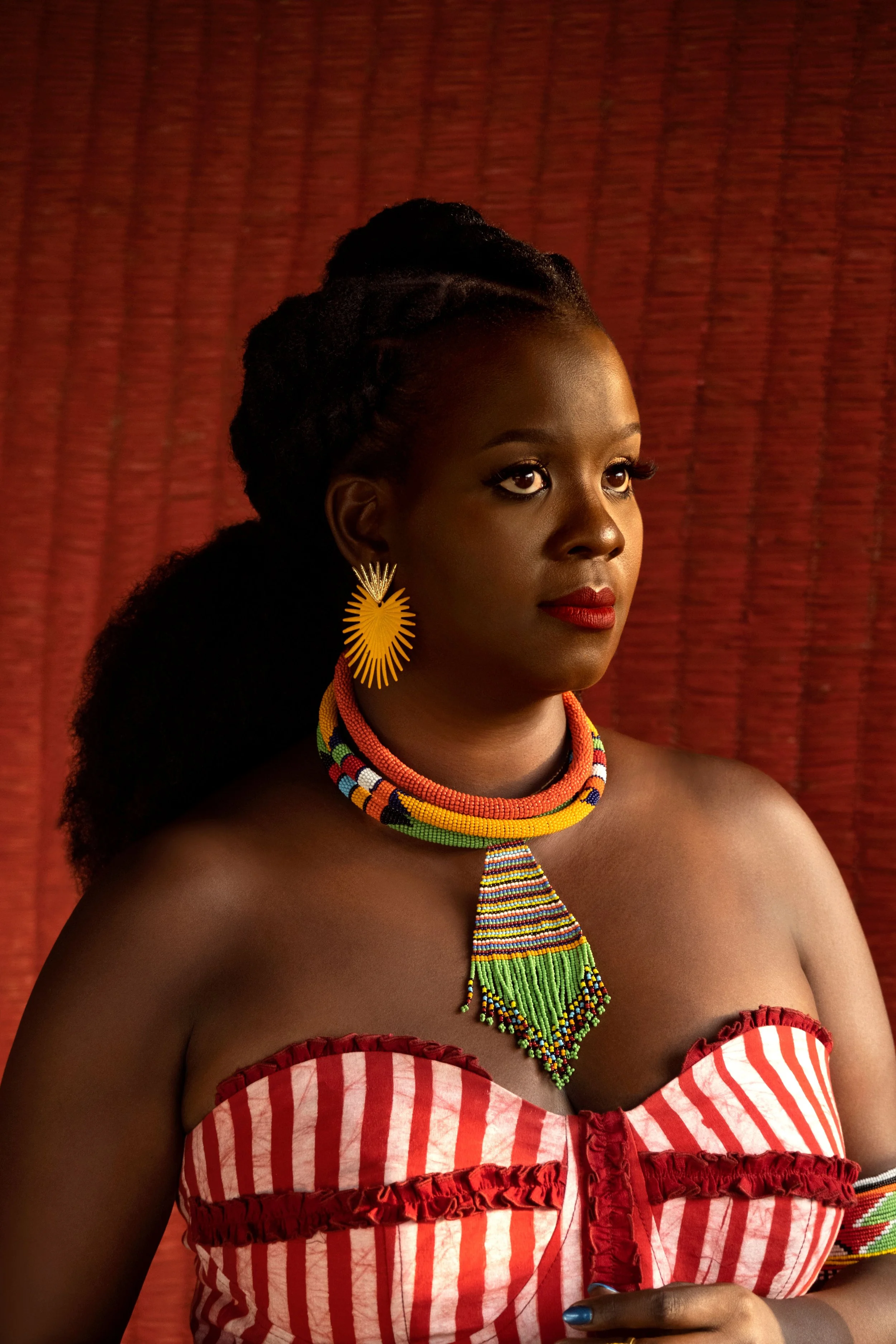
DREAMING ZENZILE
Dreaming Zenzile is a modern jazz play based on the extraordinary life of late South African singer and political activist Miriam Makeba.
At her final concert, on the eve of her death, South African musical legend and activist Miriam Makeba delivers the performance of her life, raising the conscience and the consciousness of a people. But the ancestors are calling—transporting her through the music and fractured memories of her past on a spiritual journey of reconciliation. Written and performed by international music sensation Somi Kakoma, this musical theatre event is an electrifying portrait of a revolutionary artist’s singular voice and vision.
Grammy-nominated vocalist and songwriter Somi was born in Illinois to immigrants from Uganda and Rwanda. The Huffington Post recently dubbed her “the new Nina Simone,” while NPR describes her as “an ambitious artist and superb jazz singer [who] creates an elegant amalgam of her bi-continental experiences.” Somi is a 2018 USA Doris Duke Fellow, a 2018 Soros Equality Fellow, a TED Senior Fellow, an inaugural Association of Performing Arts Presenters Fellow, a former Artist-in-Residence at Park Avenue Armory, UCLA's Center for the Art of Performance, Robert Rauschenberg Foundation, and Baryshnikov Arts Center. She became the first African artist to receive a Grammy nomination in the Best Vocal Jazz Album category for her live recording released in 2020, Holy Room. Petite Afrique, released on Sony Music’s historic Okeh Records, is a timely song cycle about the dignity of immigrants and gentrification of Harlem’s vibrant West African quarter. The album won a 2018 NAACP Image Award for Outstanding Jazz Album and follows the success of The Lagos Music Salon, which debuted at #1 on U.S. and international jazz charts, featured Common and Angelique Kidjo as special guests, and earned her an ECHO Award nomination for Best International Jazz Vocalist.
Somi Kakoma
Creative Team
Somi Kakoma, Creator and Performer
Performance History
Co-produced by New York Theatre Workshop, National Black Theatre, at NYTW | NYC
McCarter Theatre Center | Princeton, NJ
Repertory Theatre of St. Louis | Webster Groves, MO
“★★★★ STUNNING, SATISFYING & UTTERLY JOYOUS. Upbeat anthems will make you want to get up and dance in the aisles”
“★★★★ STUNNING, SATISFYING & UTTERLY JOYOUS. Upbeat anthems will make you want to get up and dance in the aisles”
What People Are Saying
“RADIANT. It is so deftly written, and performed with such luminous grace, that it’s hard to imagine anyone coming away less than transfixed.”
— Wall Street Journal
“ELECTRIC & JOYFUL. If you want to see a performer in full command of her instrument and her powers, take the F train to Second Avenue and walk the few blocks to New York Theatre Workshop to savor Somi Kakoma in Dreaming Zenzile—a thank-you note, written with deep and abiding gratitude.”
— The New York Times
“★★★★ STUNNING, SATISFYING & UTTERLY JOYOUS. Upbeat anthems will make you want to get up and dance in the aisles”
— New York Theatre Guide
“DAZZLING. From the first note, we know we’re in good hands, and Kakoma is in exceptionally good voice.”
— TheaterMania
In Development
Contributors
Dreaming Zenzile is developed with the support of National Black Theatre, The Apollo Theater, Arts Emerson, The Clarice Smith Center's Artist Partner Program, Baryshnikov Arts Center,Rauschenberg Residency/Robert Rauschenberg Foundation, and UCLA Center for the Art of Performance. It was developed at the Sundance Institute Theatre Lab in 2019. Dreaming Zenzile was originally commissioned and developed with the support of Joe’s Pub at The Public. It was also developed in part during a residency at Baryshnikov Arts Center, New York, NY. This work was developed in part during a residency in the SEI Innovation Studio at the Kimmel Center for the Performing Arts. The original music and arrangements of Dreaming Zenzile were made possible through the French American Jazz Exchange, a joint program of FACE Foundation and Mid Atlantic Arts Foundation with generous funding from Cultural Services of the French Embassy, Doris Duke Charitable Foundation, SACEM, Institut Français and the Ministere de la Culture et de la Communication.
Special thanks to The Miriam Makeba Estate and Mama Africa Cultural & Social Trust for their support and permission to create this work.







